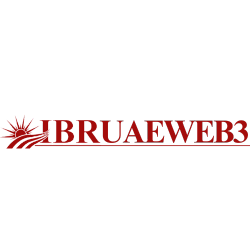Incorporation of Company Branding and SEO

It’s not a precise science, SEO. When attempting to integrate branding and SEO into a strategy, this becomes evident. This procedure is quite delicate, to put it mildly.
SEO addresses keyword and phrase placement on the one hand. Conversely, branding is concerned with the culture and loyalty of the firm. Including both viewpoints lessens their relative importance. However, removing one or the other might not achieve all marketing and strategic objectives.
It should be stressed once more that SEO is not an exact science, but rather a set of suggestions. That being said, both sides of the equation can be satisfied by implementing the proposal that follows.
Generally speaking, any early-stage business should continue to concentrate on keywords and phrases (also known as SEO), with the adoption of company branding coming later in the process.
This is only a generic statement, so don’t take anything at face value.
The logic is really simple. At first, nobody is aware of your business name, but maybe they are looking for your goods or services. Put differently, you should aim for keywords and phrases that center around your product or service rather than your business. Building trust and loyalty increases the significance of branding. This is the time when you might want to start using corporate messaging to build brand trust and improve customer relationships.
How Does SEO Affect How Well a Brand Is Known?
Brand recognition can be greatly impacted by SEO (Search Engine Optimization). The following are some ways that SEO might affect brand awareness and visibility:
— Enhanced exposure in organic searches:
SEO strategies assist in raising a brand’s organic search results on search engines such as Google. Potential consumers are more likely to see a brand when it ranks higher in search engine results pages (SERPs). Greater brand recognition may result from this enhanced visibility.
— Increased visits to websites:
A brand’s website receives more focused traffic when its SEO tactics are effective. Users are more likely to recall and recognize a brand when they come across pertinent material and information on the business’s website via search engines. Enhanced brand recognition may be a result of increased website traffic.
— Credibility and trust for the brand:
Effective SEO strategies frequently entail making sure a website is user-friendly, mobile-friendly, and has excellent content. These elements improve the user experience and raise the brand’s legitimacy and dependability. Users are more inclined to remember and trust a company when they have a great online experience with it.
— Content marketing for brand exposure:
SEO and content marketing frequently go hand in hand. Through the creation of search engine optimized content that is informative, entertaining, and of high quality, brands may expand their visibility and reach. In addition to increasing traffic, material that performs well in search results exposes the company to a larger audience and may boost brand recognition.
— Visibility on social media:
SEO has an indirect effect on a brand’s presence on social media networks. A brand may see an increase in organic traffic—including visitors who might share its content on social media—when its website appears higher in search results. By doing this, the company may reach a wider audience, gain more followers on social media, and raise its profile generally.
— Local SEO and brand visibility:
Local SEO tactics are essential for companies looking to serve customers in their area. Brands can show up in location-based search results and online directories by optimizing for local search. This has the potential to greatly increase brand awareness in certain geographic areas and increase exposure among local audiences.
It’s crucial to remember that extensive brand recognition might not always come from SEO alone. Other marketing initiatives like public relations, social media marketing, advertising, and consistent brand messaging across several platforms should be used in addition to it. On the other hand, SEO is essential for increasing a business’s online presence, which can help raise awareness and recognition of the brand as a whole.

Branding and SEO as Ways of Marketing
Increasing brand recognition is among the most common marketing goals that businesses have. Who wouldn’t want to become more intimate with their clients and win their love? To reach the broadest possible audience, many firms employ marketing strategies that aid in centralizing their customers’ opinions of their brands. Search engine optimization is one of the best choices, but companies usually overlook it when devising plans to raise brand exposure. In order to rank higher in organic search results, a website or web page is optimized for search engines. It comprises displaying the brand’s expertise and value by disseminating instructional and helpful content to the target audience in highly trafficked web areas.
The Impact of Branding on SEO
Having a well-known brand helps with search engine optimization. Growing consumer brand recognition and awareness leads to an increase in Google queries, which search engines give top priority to. Google’s search engine optimization algorithm is curious in which companies have the most public recognition. After all, it’s critical to continuously ask for customer feedback, and stronger, more seasoned companies typically provide better content.
Disclaimer: Above all information is for general reference only and sourced from internet, before making any kind of decision please visit the authorized websites of authorities and service providers.

